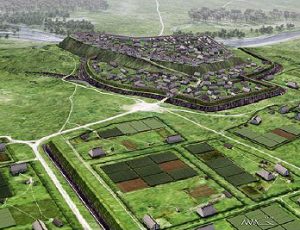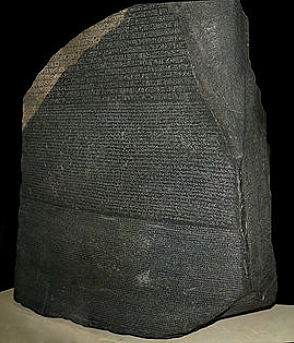Professor Manuel Fernández-Götz, Edinburgh University
“The Heuneburg Agglomeration and the Earliest Urbanization North of the Alps (600-400 BC)”
Thursday, April 30, 2015, 4:00 pm – 6:00 pm
UWM Sabin Hall G90
Traditionally, Late Iron Age oppida have been considered the “first cities north of the Alps.” Recent large-scale research projects carried out in Germany and France have challenged this view. In the light of new data, the first urban and proto-urban centres of temperate Europe developed between the end of the 7th and the 5th centuries BC in an area stretching from Bohemia to central France. The best known and most intensively investigated of these early Iron Age sites is the Heuneburg in southern Germany. The results of recent excavations indicate that this was one of the most important early Iron Age settlements, a substantial, politically and economically flourishing centre with extensive connections to areas as distant as Etruria and Greece. Excavations in the past decade have uncovered an exterior settlement of some 100 hectares below the three hectare hilltop fortification with its famous mudbrick wall, offering new insights into the centralization process that began at end of the seventh century BC. Discoveries in the surrounding mound cemeteries offer additional clues to social hierarchy and status transmission in the late Hallstatt (early Iron Age) period, resulting in a new picture of the earliest urbanization processes in temperate Europe.
Dr. Manuel Fernández-Götz, Chancellor’s Fellow in Archaeology, Edinburgh University, completed his binational PhD in pre- and protohistoric archaeology at the Christian-Albrechts-Universitsät Kiel (Germany) and the Complutense University of Madrid (Spain) in 2011. His research focuses on the evolution of Iron Age communities in Western Europe, especially questions of social identity. He has participated in numerous field projects in Germany, France, Spain, and Portugal and was coordinator of the Heuneburg project at the State Office for Cultural Heritage Baden-Württemberg in Germany. he has authored more than 80 publications on Iron Age Europe and theoretical approaches to archaeological identity.
Sponsored by the Department of Anthropology FLL/Classics and the College of Letters and Science

